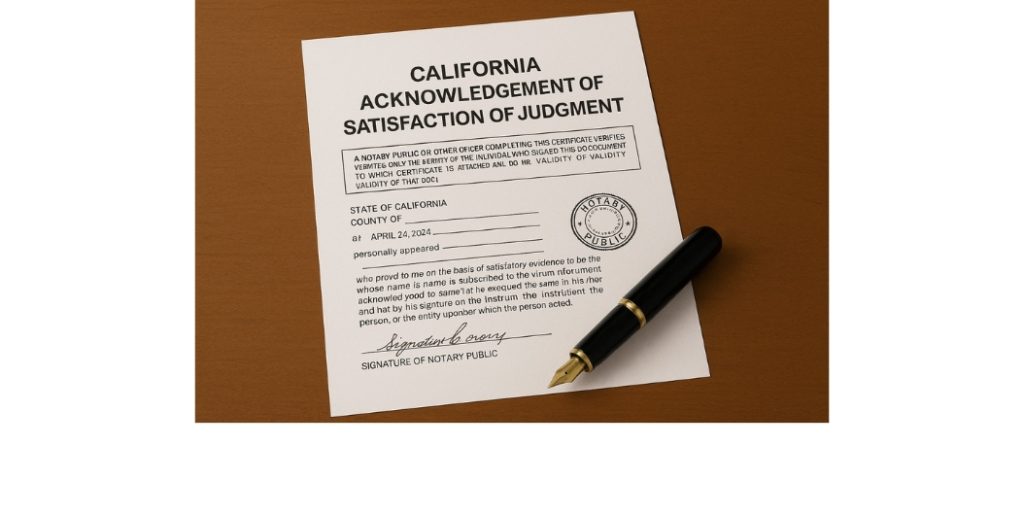If you’re releasing a judgment lien in California, the Acknowledgment of Satisfaction of Judgment must be notarized to meet eRecording standards. Learn the step-by-step process and compliance requirements.
In California, when a judgment has been paid in full, the creditor must file an Acknowledgment of Satisfaction of Judgment (Form EJ-100). But here’s a critical detail: this form must be notarized in order to be legally accepted for eRecording, especially when it pertains to releasing a judgment lien on real property, unless it has been filed and a Certified Copy of the same obtained from court..
Under California Code of Civil Procedure § 724.060, this document is treated similarly to a real estate conveyance, which mandates a notary acknowledgment for it to be valid and recordable. Without notarization, the county recorder will reject the submission, whether physical or electronic.
Ensure all required fields are filled out, including the case number, court location, and names of both parties.
The creditor or authorized agent must sign the form in front of a California notary public. The notary will verify identity, complete the acknowledgment, and apply their seal.
Once notarized, the document can be submitted through an eRecording vendor or physically at the recorder’s office. Ensure it’s filed in every county where the judgment lien was recorded.
After the document is officially recorded, a copy should be sent to the judgment debtor to notify them the lien has been released.
No. Whether filed in person or electronically, notarization is mandatory for this document to be accepted by the recorder’s office.
Failing to file may result in penalties, continued lien status on the debtor’s property, or a lawsuit initiated by the debtor.
Notarizing the Acknowledgment of Satisfaction of Judgment not only meets legal requirements but also ensures the timely release of liens, protects debtor rights, and avoids rejection or delays in court or county recording processes. If you’re unsure about how to properly complete or file the EJ-100, consult with a legal document service or an attorney familiar with California civil procedures.

Countrywide Process
May 29, 2025